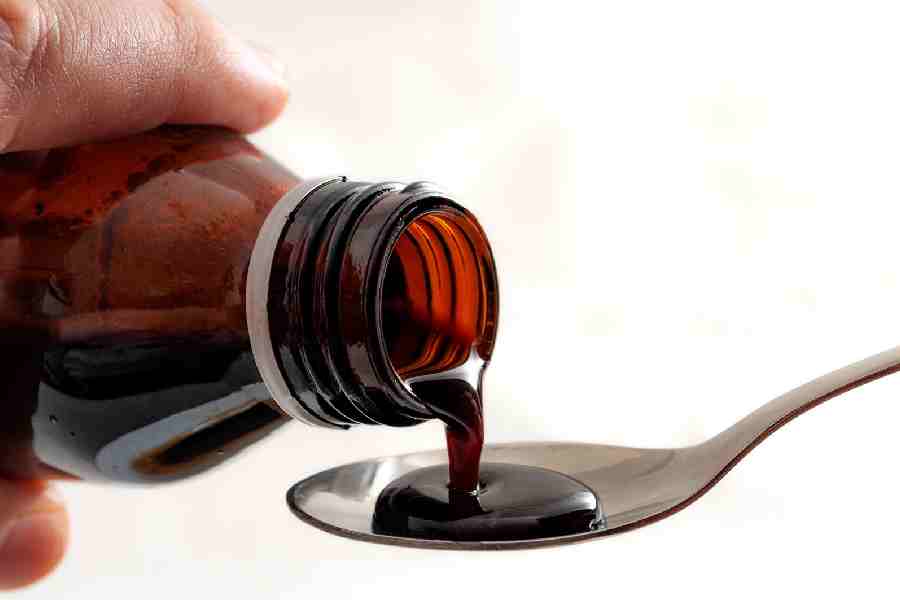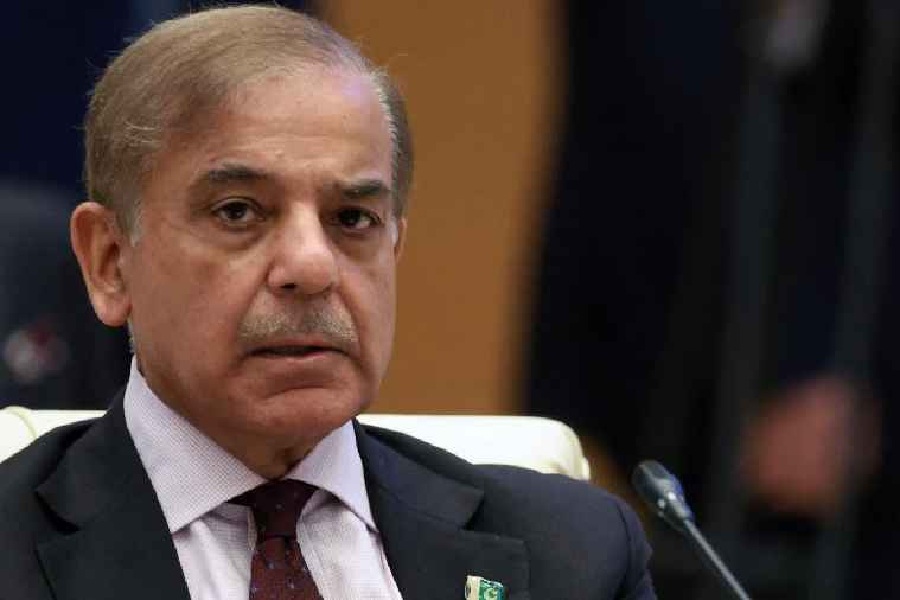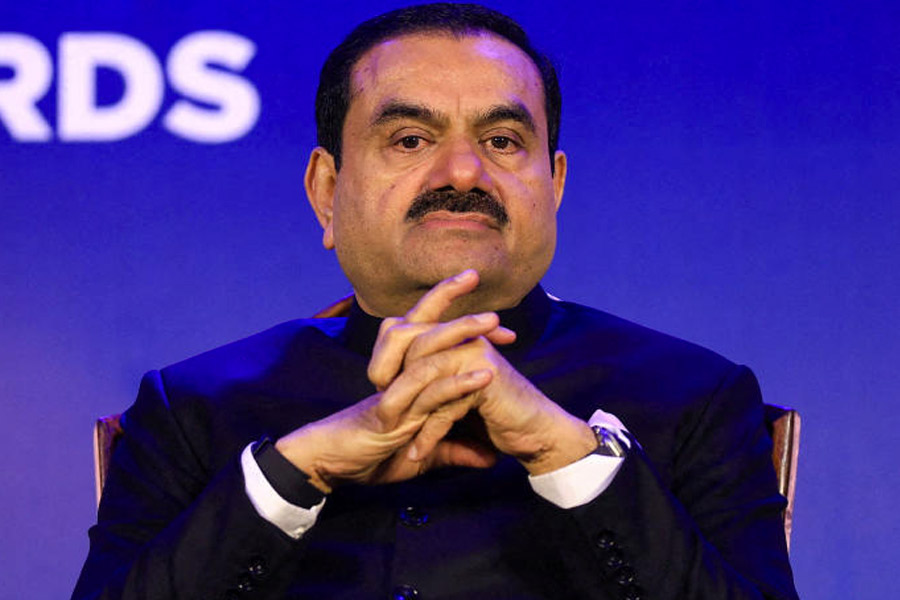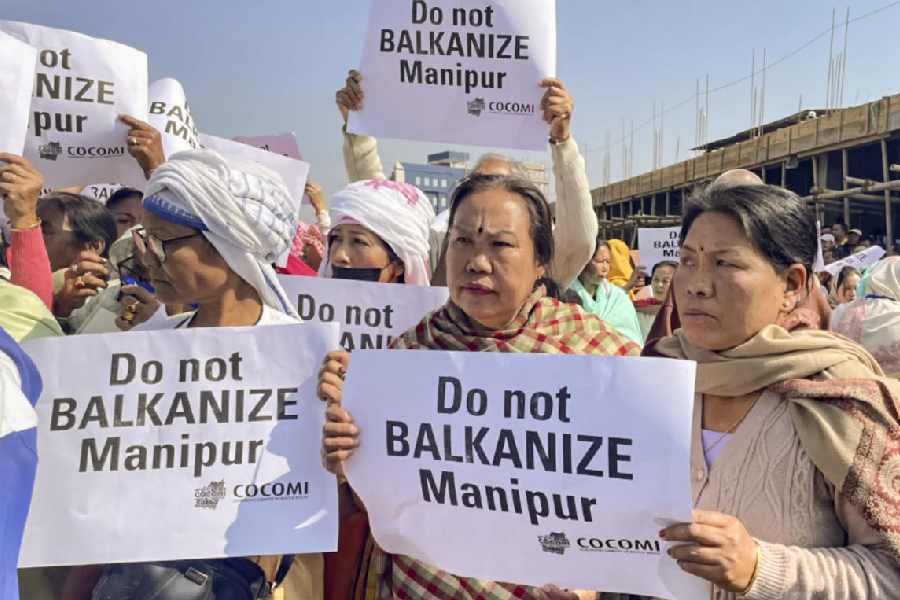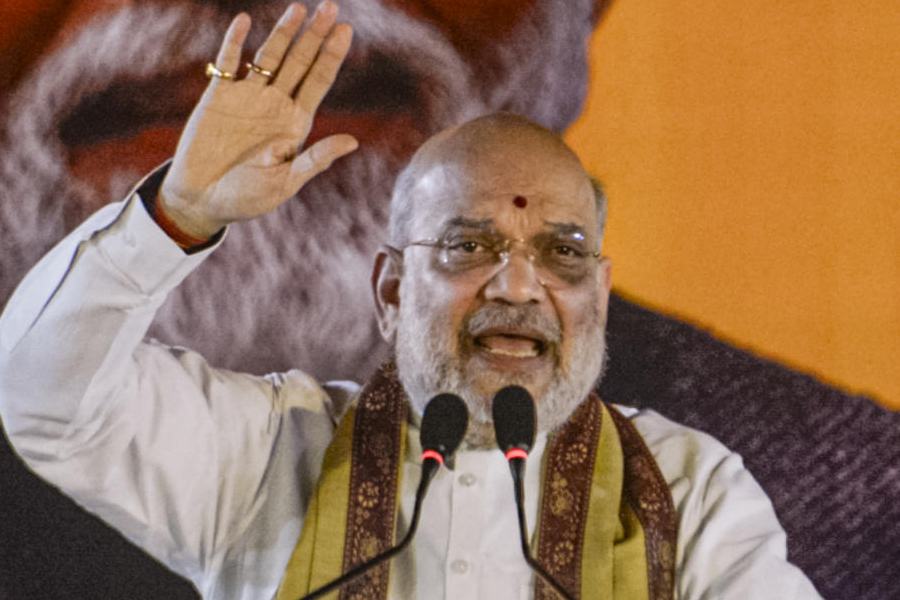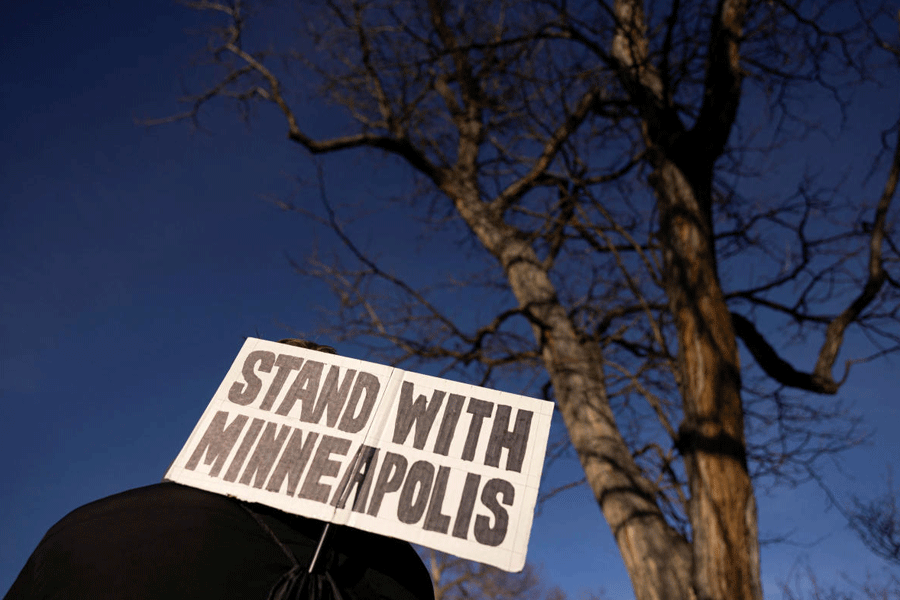Drug regulatory authorities have begun inspecting facilities producing 19 drugs across six states amid evidence that one of them, a cough syrup, contained a toxic substance that may be linked to child deaths in Madhya Pradesh.
The Union health ministry said on Saturday that samples of that particular cough syrup, tested in Tamil Nadu, had revealed diethylene glycol (DEG), a compound that can be fatal if consumed.
This was a day after the ministry had declared that samples of the same drug, tested in Madhya Pradesh after the child deaths, were uncontaminated.
Experts say the DEG in the samples of the cough syrup, sold under the brand name Coldrif, has renewed worries about drug safety and oversight.
The controversy comes three years after Indian-made cough syrups allegedly killed children in the Gambia and Uzbekistan, and despite more than 900 regulatory inspections of manufacturing facilities since then.
Health authorities have been investigating the deaths of nine children in Madhya Pradesh and three in Rajasthan since early September, all suspected to be linked to the medicines they took.
While suspicion has centred on Coldrif, the latest inspections, initiated on Friday, will cover the manufacturing facilities of all the 19 drugs that the nine dead Madhya Pradesh children had collectively consumed during their illness, a health official said.
These drugs include anti-fever medications, antibiotics, an anti-nausea formulation and cough syrups, among others.
The home ministry said that Tamil Nadu’s drug regulatory authority had, on a request from the Madhya Pradesh government after the child deaths, taken samples of Coldrif, manufactured by Sresan Pharma in Kanchipuram, and tested them.
Drug regulators in Madhya Pradesh too collected 13 samples of the cough syrup, with the three samples analysed so far found to be free of DEG.
The results of the other samples are still awaited, an official said. However, the home ministry on Friday jumped the gun and announced the negative results. But the tests conducted in Tamil Nadu showed that the samples had DEG beyond permissible limits.
The manufacturing facilities under scrutiny are in Gujarat, Himachal Pradesh, Madhya Pradesh, Maharashtra, Tamil Nadu and Uttarakhand, the official said.
“The periodic emergence of DEG in our medicines suggests that we are just not learning lessons from the past,” said Ishwar Gilada, an infectious disease specialist in Mumbai who was the resident medical officer at the J.J. Hospital in Mumbai when DEG-contaminated drugs caused 14 deaths in 1986.
A panel of experts that investigated the deaths of at least 12 children in Udhampur, Jammu, during December 2019-January 2020 too had detected DEG contamination in cough syrup samples.
Health authorites in the Gambia had in 2022 linked the deaths of at least 66 children to cough syrups from an Indian firm, Maiden Pharmaceuticals, while Uzbekistan’s health ministry had linked at least 18 child deaths to a cough syrup from Marion Biotech.
These incidents had prompted the World Health Organisation to issue global alerts and call on countries to prevent, detect and respond to substandard and falsified medical products and take measures such as risk-based inspections, market surveillance and stronger enforcement.
The Central Drugs Standard Control Organisation (CDSCO), India’s apex drug regulatory authority, has since then conducted more than 900 risk-based inspections of manufacturing facilities across the country. It has cancelled or suspended licences, stopped production, or issued show-cause notices in over 690 cases.
But Prashant Reddy, a lawyer who has been tracking issues relating to drug quality, said statements from the ministry and the CDSCO lacked transparency and adequate follow-up information.
“There is almost no information in the public domain on what kind of transgressions were detected during those 900 inspections, whose licences were cancelled, or which products were stopped,” Reddy said. “Such information would potentially be useful to the public.”

